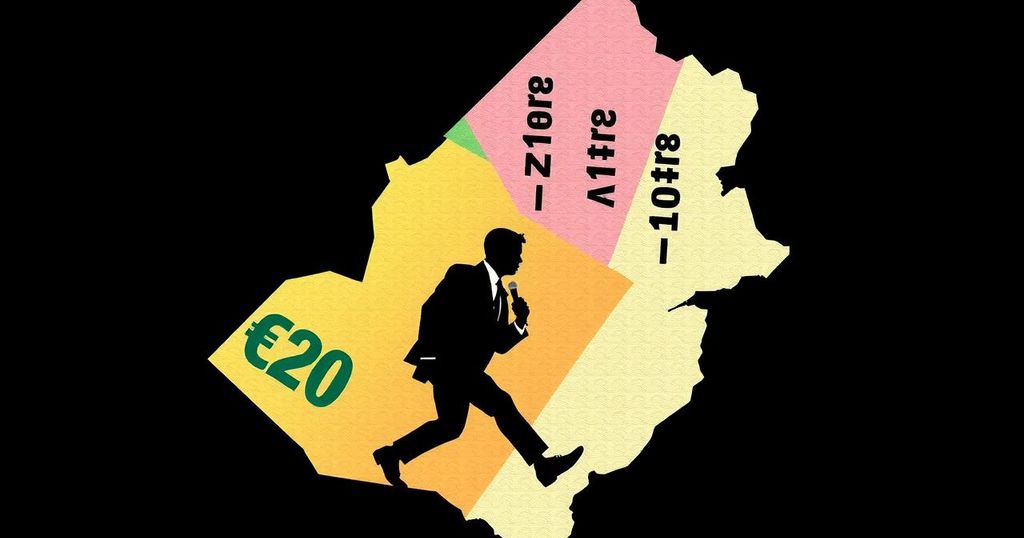The government of Zimbabwe is urged to abandon its command exchange rate for the Zimbabwe Gold (ZiG) currency as businesses face unsustainable operations due to currency distortions. Economists and retailers express concerns about the misalignment with informal market rates and advocate for a free-floating exchange to stabilize the economy.
The government of Zimbabwe is under intensifying pressure to abandon its “command” exchange rate for the recently introduced Zimbabwe Gold (ZiG) currency, which has been in effect since April. Businesses are facing considerable challenges as they attempt to navigate the resultant currency distortions, which are threatening the viability of retail operations across the nation. Retailers are struggling to maintain sustainable operations due to the enforced compliance with the official exchange rate, prompting many to recalibrate their prices in ZiG to mitigate escalating losses amidst a sharp devaluation of the local currency on the parallel market. Economist Gift Mugano has been vocal in his criticism of the current monetary approach, urging the Reserve Bank of Zimbabwe (RBZ) to permit a free-floating exchange rate for the ZiG. Mugano stated, “The central bank must liberalize the exchange rate. We are in the midst of a storm, and while correct policies must be implemented, the necessary groundwork to make this work was not laid prior to the launch of the ZiG.” In response to the ongoing challenges, RBZ Governor John Mushayavanhu had previously announced measures targeting supermarkets that were allegedly violating government regulations regarding the exchange rate. He further issued threats to revoke operating licenses for businesses found in contravention of these regulations. Despite these governmental efforts, distortions in the currency market continue to persist, with the ZiG reportedly trading at significantly higher rates in informal markets compared to the official interbank rate. Concerns are mounting among economists and business leaders regarding the sustainability of the current situation. Vince Museve articulated the predicament, remarking, “This market is mainly informal and not influenced by RBZ policies,” further emphasizing that the value of the ZiG appears increasingly untethered from the price of gold and is instead being dictated by market sentiment and confidence. Retailers have expressed apprehensions about the widening gap between the formal and informal markets, with the Retailers Association of Zimbabwe highlighting that suppliers are now maintaining dual price lists—one reflecting prices in local currency and another in foreign currency—due to the prevailing shortages of foreign currency and the volatility afflicting the ZiG’s exchange rates. The Association remarked, “This situation is unsustainable,” and noted that price increases in US dollar terms are exacerbating inflationary pressures while driving consumers away from formal retail outlets toward informal markets. Denford Mutashu, president of the Confederation of Zimbabwe Retailers, has called for constructive dialogue between the government and the business community to address the persistent crisis. Notably, despite government interventions that saw more than US$100 million injected into the market to stabilize the currency, recent trading levels for the ZiG on the alternative market fluctuated between ZiG35 and ZiG40 per US dollar, starkly contrasting with the official interbank rate at ZiG13.98. Analysts remain apprehensive that this widening disparity may provoke rent-seeking behavior, further deepening the ongoing economic crisis.
Zimbabwe is grappling with significant economic challenges that have prompted the government to institute a ‘command’ exchange rate for the Zimbabwe Gold (ZiG) currency. Introduced in April to enhance monetary stability, this intervention has sparked unrest among businesses, primarily retailers, who find themselves unable to maintain operations under the constraints of the mandated exchange rate. This scenario has been further complicated by a stark divide between formal and informal market rates, leading to questions regarding the sustainability and practicality of such a monetary policy.
In summary, Zimbabwe is experiencing growing pressure to reevaluate its command exchange rate for the ZiG as businesses struggle under its constraints, pushing many toward unsustainable practices. The ongoing disparities between informal and official market rates raise alarm bells about the health of the economy and the potential for further turmoil if constructive dialogues are not initiated. Stakeholders including economists and retail associations are advocating for a liberalization of the exchange rate to mitigate the adverse impacts of current policies and restore confidence in the market.
Original Source: bulawayo24.com






